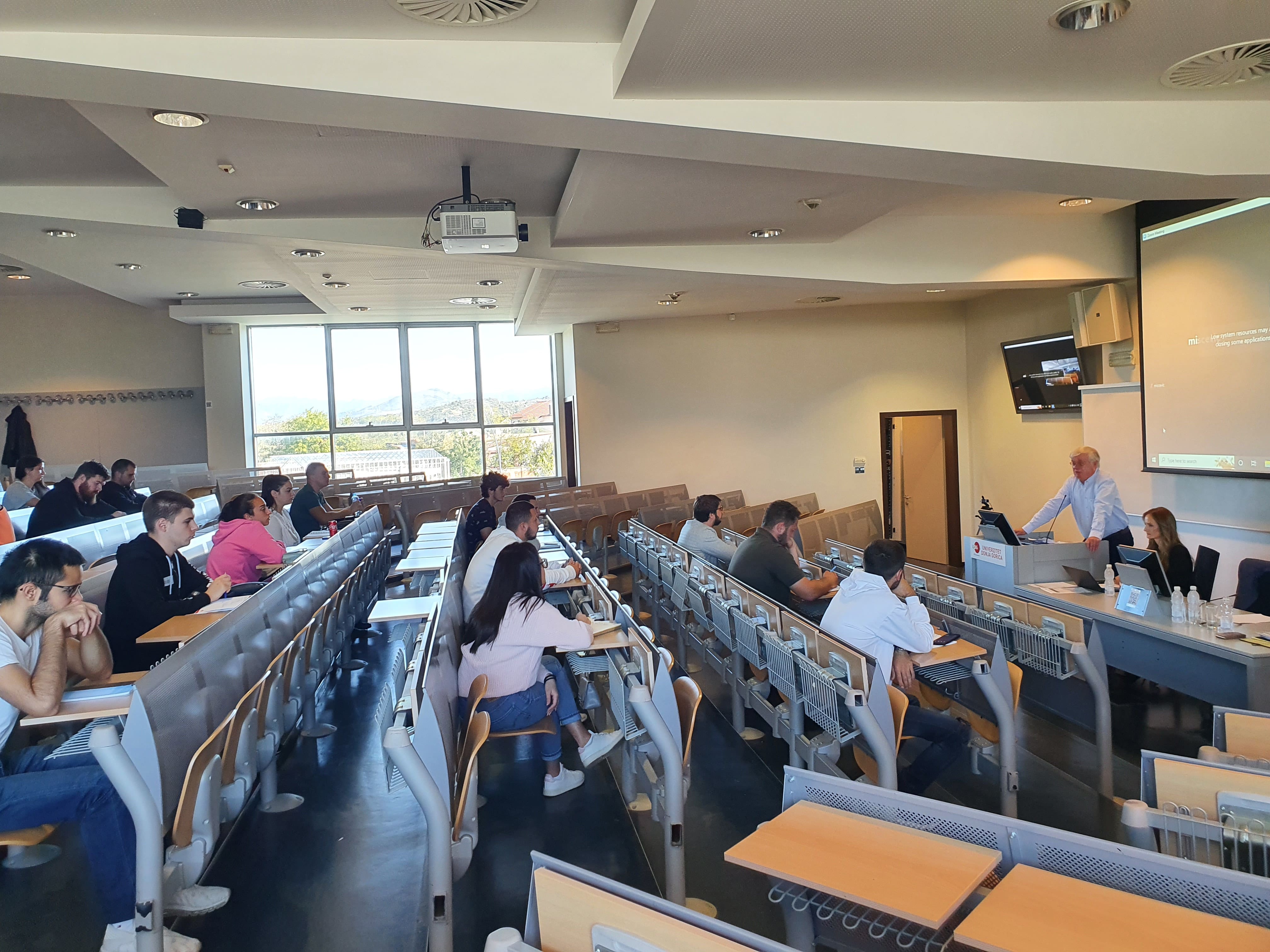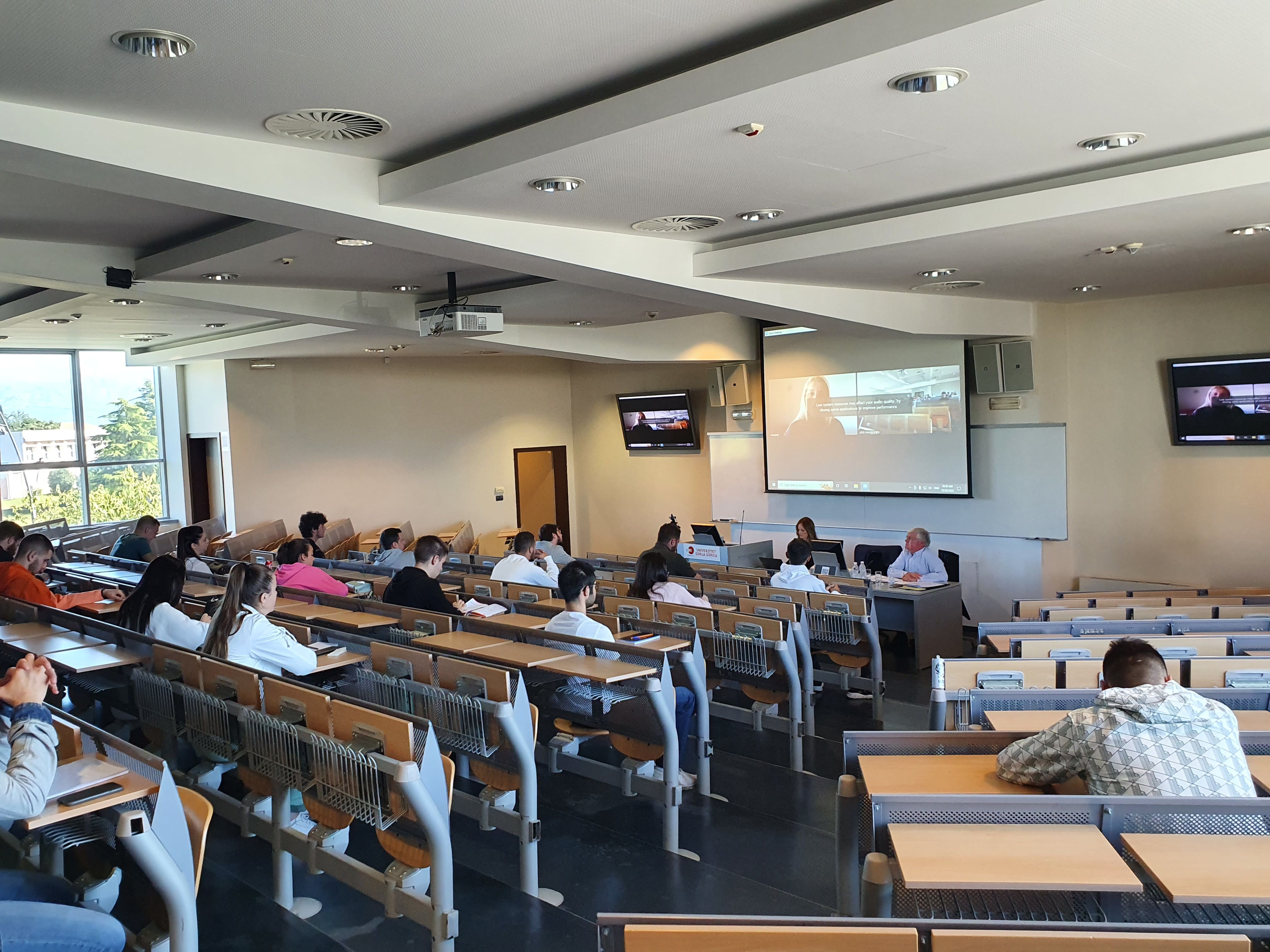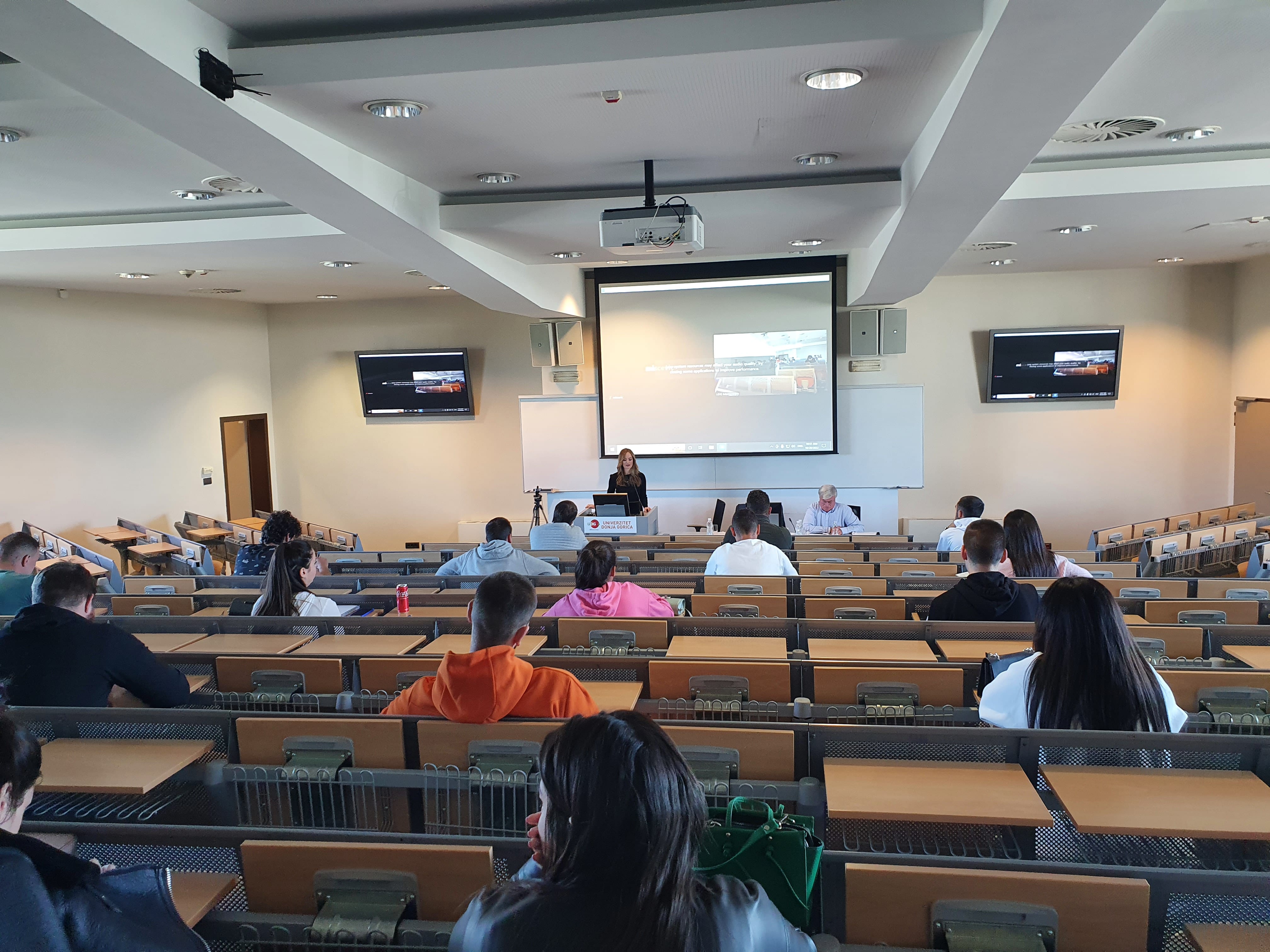Under the auspice of Jean Monnet Centre of Excellence, Faculty of Economics, University of Montenegro and University Donja Gorica organized the Lecture 2 „New Enlargement Policy: EU, China and Western Balkans“ on October 20, 2022, at the University of Donja Gorica. Speakers at the event were prof. dr. Jaap W. de Zwaan (Erasmus University Rotterdam), prof. dr. Tanja Miščević (UDG) and dr. Nikoleta Đukanović (UDG). The event highlighted various open issues concerning the New EU Enlargement policy, political and technical novelties of accession methodology, challenges ahead for the European Union and the impact of global challenges on EU Enlargement Policy.

Prof Dr Jaap W. de Zwaan made introduction regarding challenges ahead for the European Union, such as the accession of new Member States and the ‘absorption capacity’ of the Union New EU. Professor Zwaan discussed with the students the key open questions of the European Union's absorptive capacity and the possibility to expand its membership while maintaining the capacity to deepen relations between the members and the EU. In his presentation, he paid special attention to the challenges of the EU Enlargement Policy, especially in the context of enlargement fatigue, the difference between old and new members, the heterogeneity of the Union when it comes to the challenges of taking unified positions of members on key issues in the field of enlargement policy.
Prof. dr Tanja Miscevic hold presentation on the new EU Accession Methodology, with special focus on political and technical novelties. Among key elements of Negotiation framework in accordance with the new methodology, prof. Miscevic pointed out that principles governing the negotiations are the same if compering this Negotiation Framework with existing others, with slight interventions. However, she emphases that the biggest novelty in the Negotiating Framework is introduction of most elements from the substance of negotiations with negotiating principles: organizing negotiations in chapters which are then additionally organized in clusters; as well as fundamentals first, and other.

Dr Nikoleta Đukanović contributed to the discussion on current challenges of Europeanization process in the Western Balkans and the influence of the New EU Enlargement policy on democratization and europeanization processes in the WB region. Nikoleta concluded that the insufficient presence of the EU in the region opens the possibility for greater influence of the great powers: China, Russia, Turkey, and other countries. The stagnation and decline of candidate countries in the process of negotiation/accession to the European Union, the European Union`s enlargement fatigue and sluggishness in strengthening enlargement policy, and increasingly visible security challenges and destabilization trends, threaten the support and trust of the region's citizens in the EU but also point to the need to revise the current situation and revise the EU's approach to the region. Nikoleta added that it is essential that the European Union intensify its role in promoting the rule of law in the Western Balkans and take responsibility for the delays in the democratization process that have been visible in all countries in the region in recent years.

At the end of the session, the students asked numerous interesting questions to the lecturers, as soon as an interactive discussion opened about the process of integration of the Western Balkan countries into the EU, current problems and challenges in the integration process, regional cooperation and perspectives of the new regional initiatives.






